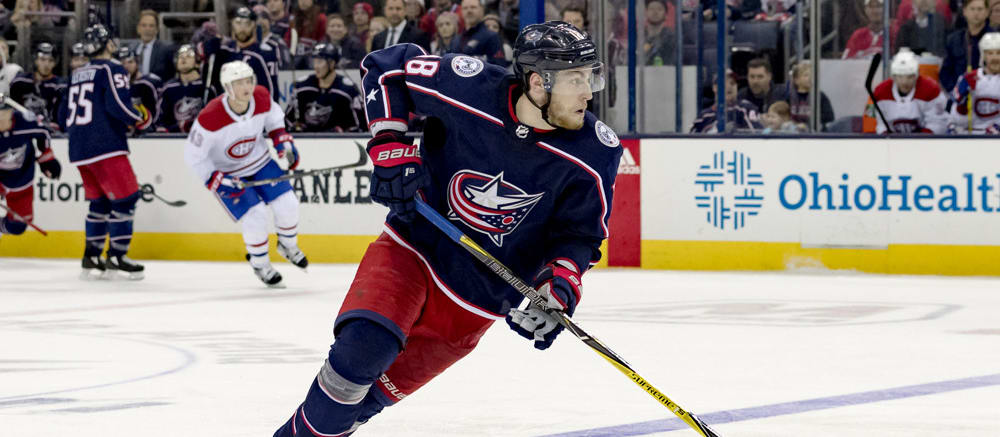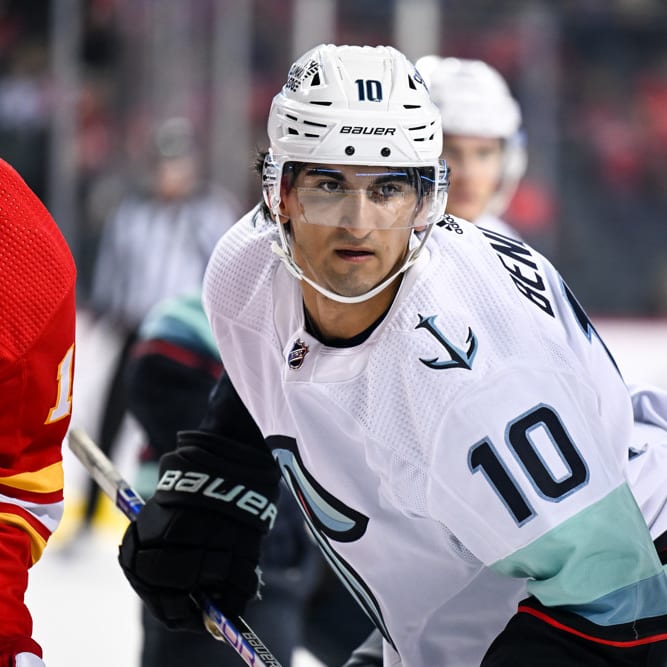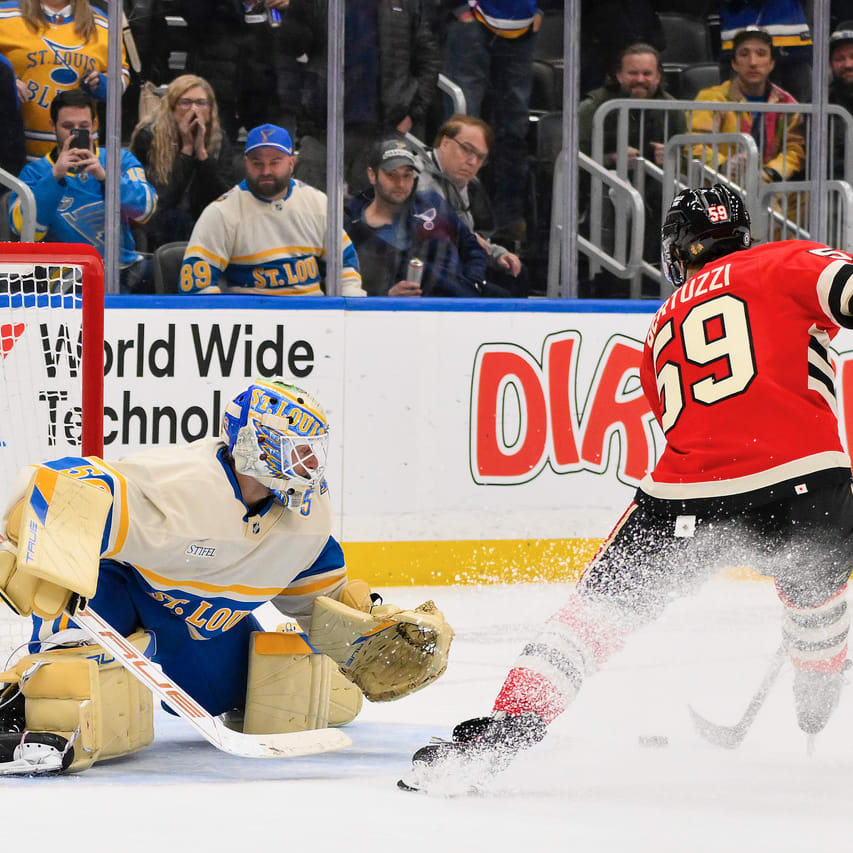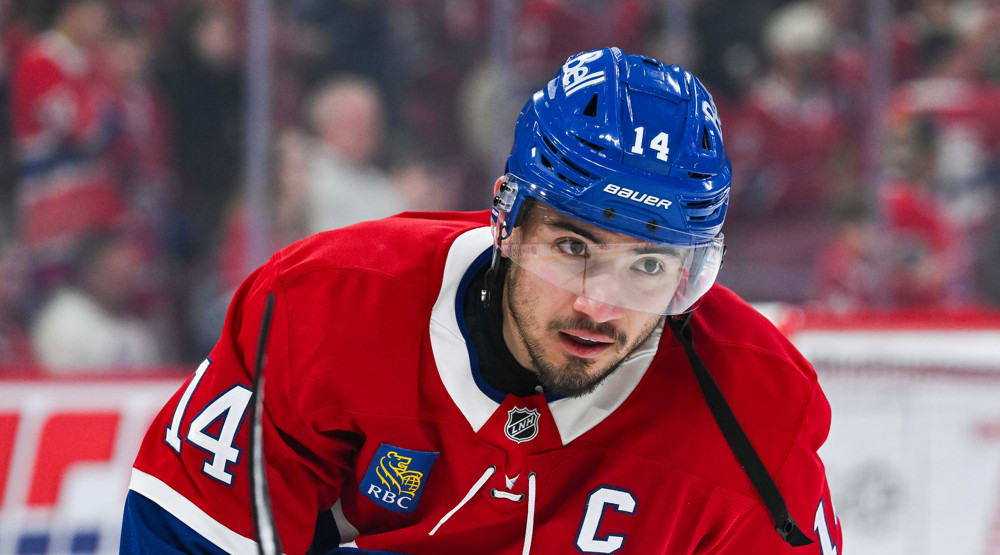While the current season remains on hiatus, there is no time like the present to start looking ahead to next year. Over the next several weeks, we'll take a look at the cap situation for all 31 NHL clubs, including restricted free agents, unrestricted free agents and even potential buyouts. Then, we'll play a little armchair General Manager by providing our recommendations for how we would approach the upcoming 2020-21 campaign if we were running the club.
In our most recent Twitter poll, the  Columbus Blue Jackets finished third and will round out the week.
Columbus Blue Jackets finished third and will round out the week.
2020-21 Cap Situation
The Blue Jackets currently have 13 forwards, eight defensemen and two goaltenders under contract for next season at a price tag of $73,847,500. The club will also be on the hook for $1.25 million from Scott Hartnell's buyout. Assuming a flat cap of $81.5 million, this leaves the club with $6,402,500 in cap space and zero spots under the 23-man roster to fill.
Restricted Free Agents
Devin Shore ($2.3 million) Pierre-Luc Dubois ($894,166) Josh Anderson ($1.85 million) Ryan MacInnis ($874,125) Kevin Stenlund ($864,166) Jakob Lilja ($792,500) Vladislav Gavrikov ($925,000) Gabriel Carlsson ($894,166)
AJ Scholz: Let's start with the easy qualifying offer guys. MacInnis, Stenlund, Lilja and Carlsson were all up with the big club at the end of the year due to the bevy of injuries the Jackets sustained this season. I think it's too early for any of these guys to receive much more than their qualifying offers, though if there is one player from that group that could earn a one-way deal, in my opinion, it's Stenlund. On the blue line, it's clear that Gavrikov has earned his spot on the 23-man roster after notching five goals, 13 helpers and 81 shots in 69 appearances this season, so I'd expect him to garner a deal in the range of a two-year, $1.5 million AAV that retains his RFA rights. When it comes to restricted free agents, I rarely like to suggest letting a player walk since the organization has spent draft equity and time to develop the player and owns that player's rights. In this case, however, I think allowing Shore to hit the open market makes sense. For a fourth-line player who averaged less than 10 minutes of ice time, he's overpaid at $2.3 million. The club also has a ton of youngsters who saw action this season, including the aforementioned Stenlund and Lilja, who are going to be looking for roster spots.
The contract negotiations for Josh Anderson could get interesting based on his injury woes this past year. If he had been a free agent last season, he could have easily commanded a deal north of the four-year, $14 million contract the Avs gave to J.T. Compher. Now, he has a shoulder injury to contend with that limited him to a mere 26 outings in 2019-20. Still, I think he should be able to point to his 27-goal season to earn a four-year deal with an AAV around $3.75 million. Now we get to the focal point of the Blue Jackets' offseason. Pierre-Luc Dubois just missed out on both the 50-point and 20-goal marks this season and likely would have reached both thresholds were it not for the league going on hiatus. In his three NHL seasons, the 21-year-old has become a top-line center in the league and will no doubt want to be rewarded as such. I think it makes sense to give PLD a long-term deal in the six-year range and I wouldn't be surprised to see him snag up to $6 million AAV. It might seem like a lot at first glance, but this is the team's second highest point producer over the past three seasons since he broke into the league. In the words of John Malkovich from the film Rounders, "Pay that man his money."
Kyle Riley: Dubois is the clear headliner here. The 2016 first-roud pick is just 21 years old and already has three successful NHL campaigns under his belt, totaling 65 goals and 158 points while posting a plus-22 rating in 234 games over that span. He's easily worth more than Kevin Hayes, but the Flyers totally overpaid Hayes when they handed him a seven-year, $50 million deal last summer. Nonetheless, I think a seven-year, $49 million deal could look really good for the Blue Jackets in a few years. That deal alone, however, will put Columbus right up against the cap, so they're clearly going to have some maneuvering to do in terms of trades this offseason. Anderson, in my opinion, is the only other "must-sign" player out of this forward group. The 26-year-old winger showed his potential when he racked up 27 goals and 47 points last year, but he's been limited to just four points in 26 games this campaign due to a shoulder injury, so he shouldn't be expecting a huge payday or a long-term deal. I think a one-year, $2 million "prove-it" contract should get it done.
Shore is an overpaid fourth-liner, so he won't be back next season. As AJ mentioned, Macinnis, Stenlund, Lilja and Carlsson all have minimal NHL experience, so they won't be get much (if any) more than their QOs. Gavrikov, on the other hand, has proven to be a capable bottom-four blueliner this season, so he'll be in line for a raise this offseason. I think a two-year, $3.5 million deal should get it done.
Unrestricted Free Agents
None
AJ Scholz: After the 2019-20 campaign in which the Jackets had a ton of UFAs and brought in some rentals to make a playoff run, this year they have none to worry about. Even if you look deeper into their minor-league system, the only two UFA contracts belong to Doyle Somerby and Dillon Simpson, neither of whom racked up significant numbers in the minors. They could be handed minimal two-way deals to keep them around for another year or two if the club wants them with AHL Cleveland.
Kyle Riley: It's good that Columbus doesn't have any UFAs to worry about this offseason, because they wouldn't have the cash to pay them anyway.
Minor-League Free Agents *Who appeared in an NHL game in 2019-20
Marko Dano ($800,000) Calvin Thurkauf ($714,444) Kole Sherwood ($694,444) Matiss Kivlenieks ($925,000)
AJ Scholz: The two easy decisions will be Thurkauf and Sherwood who have a combined eight games of NHL experience at this point. They both figure to receive qualifying offers equal to one-year, two-way contracts worth $735,000. In the minors, Kivlenieks was rather pedestrian with a 9-8-3 record and 2.96 GAA. An $874,125 qualifying offer should be sufficient here as well. How to handle Dano will be a little more difficult. He's played in just 38 NHL games for Columbus over the past two seasons but he has 141 top-level contests under his belt over the course of his six-year career. I still think a two-way deal makes the most sense, though a slight raise to $950,000 would certainly be warranted given his experience.
Kyle Riley: Dano's only played in 11 NHL contests over the past two years, so if he isn't willing to take a cheap, two-way deal to stick around, he'll be playing elsewhere next campaign. Thurkauf has been solid in the minors, but he's only appeared in three top-level games since turning pro in 2017-18, so he'll just need his QO. The same can be said for Sherwood, who has only appeared in five NHL contests to date. I think Kivlenieks could still develop into a solid NHL backup, but he's not there yet, so his QO should also do the trick.
Final Thoughts
AJ Scholz: While nothing official has come out from the team, Dubinsky's wrist injury has been deemed a chronic issue, so he could be headed to long-term injured reserve for the 2020-21 campaign, which would provide the club with an extra $5.85 million in salary cap relief. This will be a critical determination if the team is going to be able to offer Pierre-Luc Dubois a big-time deal. Additionally, I don't necessarily see this club carrying eight defensemen on Opening Day, so I'd expect Columbus to try to ship out a player like Markus Nutivaara via trade or it could end up having to place either Dean Kukan or Scott Harrington on waivers and hope they clear. I'd also expect Eric Robinson to end up on waivers before the start of the season considering he is on a one-way deal and there are other guys I'd rather have up in the NHL, though I'd be surprised if he was claimed.
Kyle Riley: The Blue Jackets will be in a major cap crunch next year, so although it'd obviously be unfortunate for the 34-year-old vet, if Dubinsky does ultimately end up on long-term IR at the start of the 2020-21 campaign, it would be a huge relief for Columbus financially. If that doesn't come to fruition, the Jackets will likely have to explore trading someone like Nick Foligno, who only has one more year on his contract at $5.5 million..











































